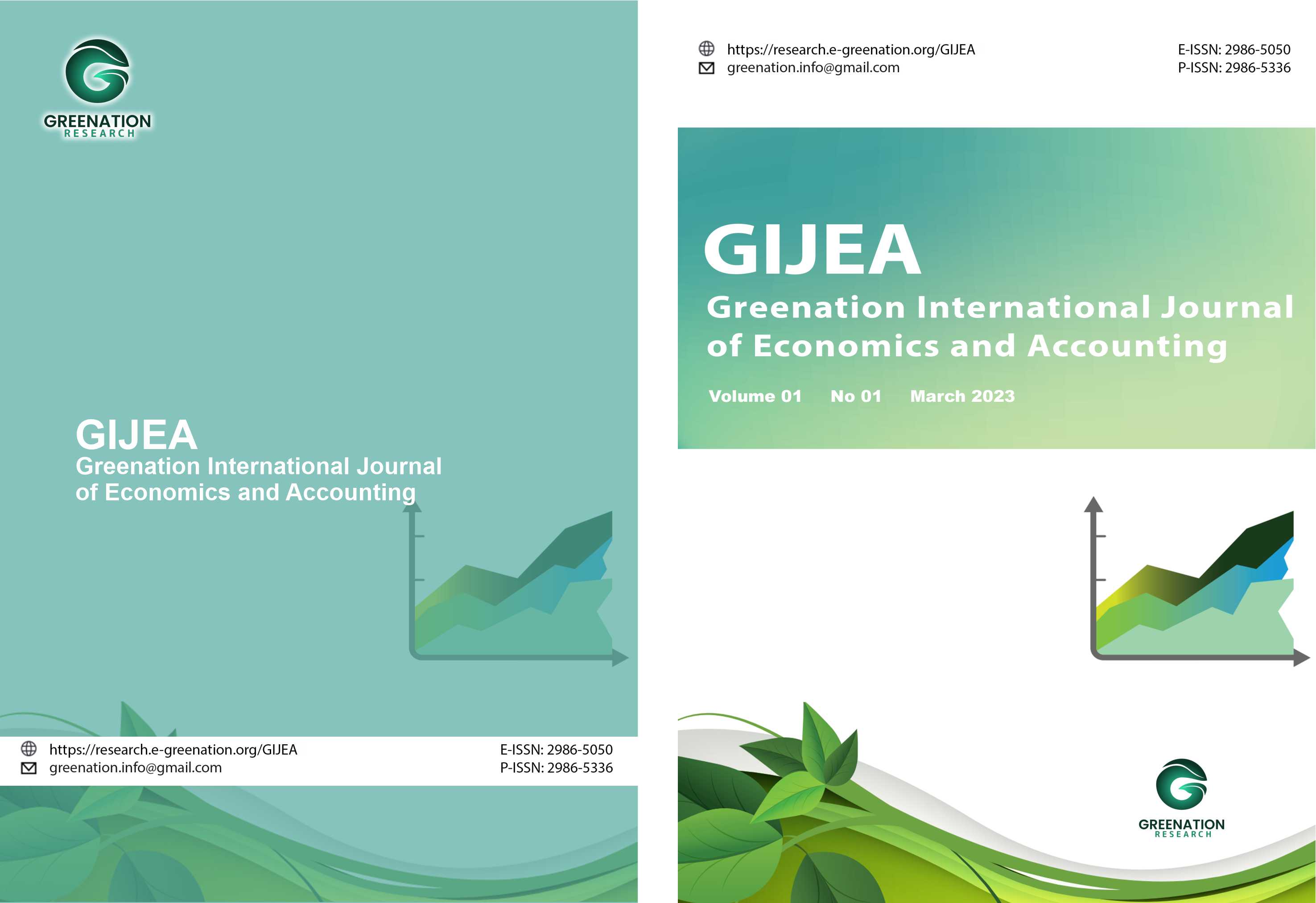Impact of Boycott, Divestment, and Sanctions Movement on Indonesia’s Economy
DOI:
https://doi.org/10.38035/gijea.v2i1.156Keywords:
Impact, Boycott Divestment and Sanctions movement, Indonesian EconomyAbstract
Product boycott refers to not using and purchasing a product from a particular organization or company. The goal is to pressure Israel to fulfill what the Boycott Divestment and Sanctions (BDS) movement describes as Israel's obligations under international law, defined as withdrawal from the occupied territories, removal of the separation wall in the West Bank, full equality for Arab citizens-Palestinians in Israel, and respect, protect and advance the rights of Palestinian refugees to return to their homes and property. This research uses qualitative methods with literature studies. Meanwhile, the approach applied uses qualitative descriptive analysis with data related to the problem in the study. Writers use reading sources such as journals, articles, news, etc. as writing material and then conclude. The boycott of foreign products, especially Israeli products in Indonesia, has a positive impact on the growth of domestic product revenues. However, the boycott movement reduces economic growth because it reduces demand and increases the number of unemployed. The estimation method used in this research presents certain advances compared to other methods found in the literature because it makes it possible to determine the impact of the BDS movement on the Indonesian economy while still considering the interdependence between different sectors, as well as able to decide on its implications fairly compared to other industries. This research also uses large amounts of data, so it is hoped that it can increase the strength of the research conclusions
References
Amalia, F., et.al. (2022). Development Economics. Bandung: Penerbit Widina Bhakti Persada Bandung.
Awad, R. (2021). BDS as the baseline of solidarity: toward a model of co-struggling with Palestinians in their movement for justice and liberation (Vol. 14, Issue 3).
Barkay, T., & Shamir, R. (2020). Israel vs. BDS: corporate social responsibility and the politics of human rights. Globalizations, 17(4), 698–713. https://doi.org/10.1080/14747731.2019.1689689
Fernanda, A. A., Susiatiningsih, H., & Alfian, M. F. (2022). The Boycott of French Products as a Response to Carlie Hebdo Magazine and Islamophobia in France. Journal of International Relations Universitas Diponegoro, 8(3), 448-461.
Indah Mentari, C., Wahyuni, F., Rahmadani, P., & Rindiani, W. A. (2023). The positive impact of boycotting foreign products on the growth of local products (Indonesia). 2. https://doi.org/10.8734/mnmae.v1i2.359
Khoirudin, R., Ismaulida, A., & Khasanah, U. (2023). Analysis of factors affecting economic growth in Indonesia. Journal of Global and Multidisciplinary, 1, 407–416.
Lustick, I. S., & Shils, N. (2022). The Palestinians, Israel, and BDS Strategies and Struggles in Wars of Position. Israel Studies Review, 37(3), 28–57. https://doi.org/10.3167/isr.2022.370303
Oktavia, O., Noval, M. R., Hanipah, R., & Handayani, M. F. (2024). The impact of boycotting American products on the Indonesian economy. Jurnal Mutiara Ilmu Akuntansi, 2(1), 318-323.
Rahmani, A. N. (2023). Impact of the Israeli-Hamas War on Stock Prices and Public Buying Interest in Israeli-Supporting Products. In AoEJ: Academy of Education Journal (Vol. 14).
Risqi, M., Septiazi, F., & Yuliana, N. (2023). Analysis of the Influence of Social Media on the Boycott Movement of Israeli Products in Indonesia. Triwikrama: Jurnal Multidisiplin Ilmu Sosial 2(4), 2023–2054.
Simanjorang, B. M., SyahPutra, B. A., Husin, M. H., Bangun, I. B., Zawani, N., Siburian, T. D. N., & Perangin-Angin, Z. G. (2023). The Influence of the Palestinian Conflict with Israel on the Hamas Resistance Movement and Its Impact on Indonesia. Mediation: Journal of Law, 24-30.
Sudarsono, H. (2008). Study the Impact of Boycotting American Products on the National Economy. Unisia, 31(70) 417-430.
Suyanto., Tanaya, O., Wibowo, J. M., & Astanto, T. J. (2022). International Business: Contemporary Strategies and Challenges. Surabaya: Directorate of Publishing and Scientific Publications, University of Surabaya.
Younes, F. (2019). The Growth and Impact of the BDS Movement: Linking Local to Global Context. Confluence, 1(1) 39-51.
Zulian, I. (2018). The role of the World Trade Union against Israeli apartheid violence in Palestine. Jurnal PIR: Power in International Relations, 2(2), 114-131.
Downloads
Published
How to Cite
Issue
Section
License
Copyright (c) 2024 Gina Hikmatul Ula, Nurul Hikmah, Rochanda Wiradinata, Nurul Senja

This work is licensed under a Creative Commons Attribution 4.0 International License.
Copyright :
Authors who publish their manuscripts in this journal agree to the following conditions:
- Copyright in each article belongs to the author.
- The author acknowledges that the GIJEA has the right to be the first to publish under a Creative Commons Attribution 4.0 International license (Attribution 4.0 International CC BY 4.0).
- Authors can submit articles separately, arrange the non-exclusive distribution of manuscripts that have been published in this journal to other versions (for example, sent to the author's institutional repository, publication in a book, etc.), by acknowledging that the manuscript has been published for the first time at GIJEA.
























